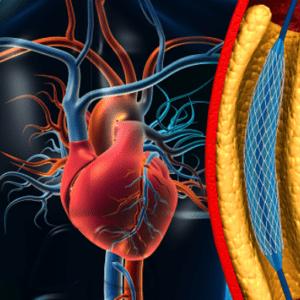An Intro: Does dietary fiber help you lose weight?
This is the starter question being asked most, “Does dietary fiber help you lose weight?” There were few interesting researched had been done on the consuming dietary fiber on weight loss.
The results were mixed, but a couple of things stood out:
• One study suggested that there is a correlation between consuming more dietary fiber and less food intake. This must have a very real impact on overall health as people with high fiber intakes seem to have lower blood sugar levels. Which means they may be better able to deal with their diabetes.
• Another study suggested that low-fiber diets are beneficial for weight loss — but only if you stick to them for long enough. This is an important point as short-term diets aren’t likely to work well for long-term or sustainable weight loss — you need to keep at it for months or even years before you see significant results.
• A third study into eating patterns found that high-fiber diets were not associated with better weight loss than low-fiber ones — and increasing your intake of dietary fibers should not be considered an alternative strategy for weight loss!
This all adds up to something we already know. There is no single “best” diet or way to lose weight. You need something tailored just right for your lifestyle. If you have diabetes, staying at home won’t be an option.
So, you will need a diet which includes carbohydrates in exchange for protein, fats and small amounts of other nutrients. The most important one might be higher protein foods like meat or dairy products.
Therefore, everyone needs different strategies and strategies change depending on your health status.
Nutritive Value of Dietary Fiber
The nutritional value of dietary fiber is controversial. Some studies indicate that it can help in weight loss and reduce the risk of obesity and other diseases. While others show no or very limited benefits. In any case, the debate about the role of fiber in weight loss is a hot topic.
What is soluble and insoluble fiber?
Soluble fiber comes from plants and can be thought of as a kind of carbohydrate, but unlike carbohydrates that are digested by the body. It has been found to have a number of health benefits including lower LDL cholesterol levels and a reduction in uric acid.
Insoluble fiber does not go through the same digestive process and is absorbed directly into the bloodstream. They are found mostly in fruits, vegetables, nuts and seeds, with most plant foods having some level of insoluble fiber.
Some studies suggest that people who eat more fruits or vegetables may benefit from consuming more soluble fibers—but there may also be an effect on overall diet quality.
In fact, one study suggested that diets with greater amounts of whole fruit were associated with higher intakes of non-digestible dietary fibers. There is also some evidence suggesting that eating fewer servings of starchy foods such as potatoes may help to reduce body weight. While research has yet to identify specific mechanisms involved in this impact.
Food Sources of Dietary Fiber
Does dietary fiber help you lose weight?
Is it true that one can lose weight by eating more fiber?
It is interesting questions. Some people claim that it is true, while others say it is false. One reason for the controversy is the fact that there are a lot of different types of dietary fibers, and the amount of fiber in different foods varies widely.
The most common type of dietary fiber is insoluble fiber. Which has been linked to lower blood cholesterol and may help control blood sugar levels. But even this type, like all types of dietary fiber, is not absolutely safe.
Insoluble fiber can cause intestinal problems and should be used with care. The most common type of soluble fiber found in food is called viscous fiber. This type can help you cut calories and maintain a healthy weight by slowing down your appetite and increasing satiety levels.
Helping you feel full longer after meals so you don’t eat too much at once. In addition, it slowing down or stopping your digestive process. So, you don’t produce as much waste. There are also some other kinds of soluble fibers such as resistant starch found in some legumes. But these are not recommended for long-term use because they can cause inflammation in the body and affect your metabolism in dangerous ways such as raising blood sugar.
If taken for too long without breaking them down first which could be problematic if you have diabetes. If you have already tried one or more of these types of soluble fibers in recent years but have not found them to be helpful. Here are a few things to try instead:
• By adding more beans or whole grains to your diet while continuing to take other foods with soluble fiber as they are digested such as whole grain breads and cereals. These foods will slow down digestion a bit longer than soy products will make them taste sweeter!
• Try incorporating more nuts into your diet instead of just limiting them. They tend to be easier on the digestive system than other types of cereal or nuts!
• By eating an extra serving of fruit each day for breakfast instead of cereal or toast. This will give your digestive system time to stop producing waste before lunch so you don’t feel hungry later on!
Effect on Body Weight
There are many ways to lose weight — some over-the-counter and some that require prescription. But the vast majority require a prescription, not over-the-counter. And we’ve heard of a few that require serious surgery to use too such as a gastric bypass. So why do we need them?
The short answer is that their side effects can be bad. They can lead to low blood sugar and other problems. Furthermore, they can interfere with how your body metabolizes nutrients. And they increase your risk of diseases.
Some studies have linked these effects to long-term use. There are people who used them for one or two years ended up with health issues! Some studies have shown no effect at all.
The long answer is that the medications are there to prevent complications from existing conditions like high cholesterol or high blood pressure. Which are caused by the body’s own production of cholesterol and other things called “metabolic syndrome” or “the sick factory” if you will. So, the medications help you avoid those complications by helping your body produce less of certain chemicals in your system.
Effect on Glycemic Index
The glycemic index (GI) is a metric that measures how rapidly food raises blood sugar levels. The GI is a simple way to measure how much of a carbohydrate you consume and how quickly your blood sugar rises afterwards. It’s usually used in conjunction with the glycemic load. Which is a more sophisticated way of calculating the impact of foods on the body.
The GI chart for net carbs:
In other words, it’s not just about what you eat but also its effect on your body’s response to it. Although some people can have very difficult time processing whole grains and complex carbs. It takes some time for your body to adapt. So, why are net carbs so important? Mainly because net carbs make up 50% of the calories you eat.
So, does dietary fiber help weight loss program? The answer depends on whether or not you want to lose weight. If you want to lose weight, then yes, dietary fiber consumption can help.
How can dietary fiber help lose weight?
First things first, people at different points in their weight-loss trajectory should start eating more fiber and less processed carbohydrates because they tend to be associated with improved insulin sensitivity. Not only that, but it also improves your burn fat ability. For example, one study showed that restricting carbohydrates leads to better insulin sensitivity and fat oxidation i.e., burning fat for fuel. Which translates into improved overall metabolic health via less damage done by oxidative stress-mediated inflammation in the body and lower triglyceride levels.
Lastly, too much fiber can actually cause problems with gut health. Increasing fiber intake helps improve digestive health. Therefore, weight loss because fiber helps digestion by facilitating both elimination of indigestible food particles as well as reducing food intake without affecting appetite. As a result, consuming more fiber also reduces appetite — this all helps with weight loss!









